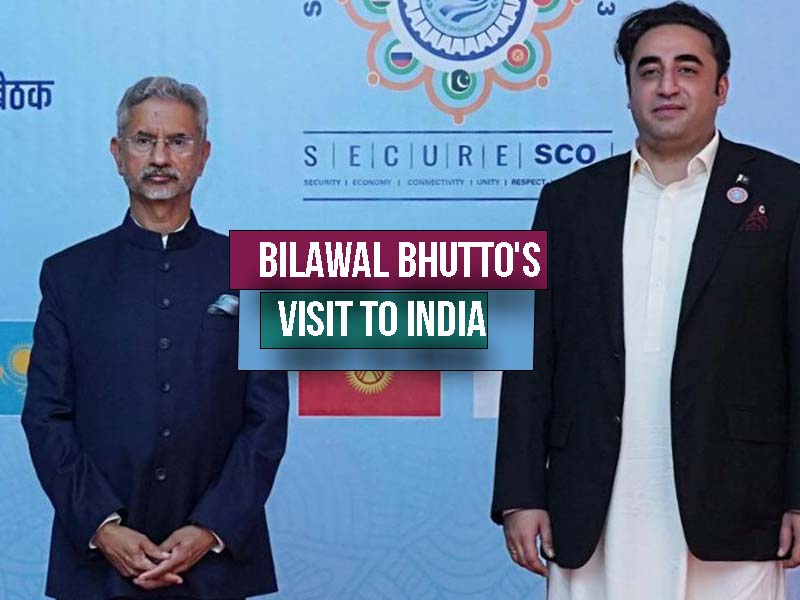The Bilawal Bhutto’s visit to Goa for attending two days (May4-5) SCO meeting is the talk of the town. The SCO was formed to extend cooperation in the political and security domain among its members. The SCO consists of Pakistan, India, China, Russia, Kazakhstan, Kyrgyzstan, Uzbekistan, and Tajikistan. Bearing in mind the importance of SCO, Bilawal Bhutto’s visit was of great significance. This was the first visit by Pakistan’s Foreign Minister in 12 years.
Bilawal’s visit is being analyzed by different local and foreign analysts. According to an interview with the Diplomat, Michael Kugelman maintained that in terms of Pak-India relations the visit was not successful but it was important for interaction with member countries. He was of the view that Pakistan took part in the summit for engaging with key members of SCO instead of improving relations with India. In one of his tweets, he asserted that Pakistan achieved what it wanted of this visit.
In addition to this, an assistant professor of Political Science at Tufts University in the United States, Fahd Humayun told Al Jazeera that the visit shows Pakistan’s stakes linked to multilateralism and SCO as a key platform in Asia. He further said that as India’s rhetoric against Pakistan becoming more provocative internationally, Pakistan has started looking at SCO instead of specifically focusing on relations with India. In the same vein, Sushant Singh, a senior fellow at the New Delhi-based Centre for Policy Research, held that the arrival of Pakistan’s Foreign Minister to India in itself was a meaningful development.
Maleeha Lodhi penned an article titled “No melting of the ice“, in which she expressed disappointment as this visit turned the expectations of achieving a breakthrough in Pak-India relations unrealistic. At the same time, she acknowledged Pakistan’s commitment to regional economic connectivity and cooperation.
Keeping the abovementioned analysts before us, it would safe to infer that there are two ways to analyze Bilawal’s visit: one through the India-Pak paradigm and the second is a regional paradigm. In the first case, it was a missed opportunity but in the second case, it was a positive development. It is not so logical to see the visit through the first paradigm because the chances of a thaw in relations were nearly remote.
India’s unilateral act to abolish Kashmir’s autonomous status reduced the possibilities of track II diplomacy or confidence-building measures. This visit needs to be seen from regional and multilateral perspectives. The SCO is more advantageous to Pakistan than India because of the former’s proximity to China. As China is the most influential country in the SCO, it was in favor of Pakistan attending meetings and advancing its agenda for the region’s peace and stability.
The Indian minister for External Affairs S. Jaishankar in his opening address to the meeting targeted Pakistan indirectly. He said that “There can be no justification for terrorism and it must be stopped in all forms and manifestations, including cross-border terrorism.” In his speech, Bilawal Bhutto also took an indirect swipe at India when he emphasized the joint efforts to combat terrorism and cautioned against ‘weaponizing terrorism for diplomatic point-scoring.’ He urged the forum to “condemn all forms of terrorism including state–sponsored terrorism.” While making an indirect reference to India’s illegitimate move in Kashmir, Bilawal said that “unilateral and illegal measures by states in violation of international law and Security Council resolutions run counter to the SCO objectives”. Bilawal truly presented and defended Pakistan’s stance on Kashmir and Terrorism.
In one of his articles, the former ambassador of Pakistan, Najm-us- Saqib critically analyzed the diplomatic behavior of JaiShankar and Bilawal Bhutto. In response to Jaishankar’s remarks regarding cross-border terrorist activities, Ambassador Najm reminded India of the EU DisinfoLab report and dossiers on Indian cross-border illicit activities. According to Ambassador Najm, Bilawal fared well as a diplomat. He further maintained that Bilawal’s demeanor was better than that of his counterpart.
In a news conference, Jaishankar dubbed Pakistan as a ‘terrorism Industry’. Ambassador Najm took these remarks as undiplomatic and uncalled for. Mr. Najm further wrote that diplomats do not use such kind of words even in the drawing room.
Another important thing is that Bilawal should not be criticized for political point scoring. He went to attend meeting for Pakistan not for Pakistan Peoples’ Party. We may have objections to his politics and party but it was in Pakistan’s interests to be there. Pakistan did not lose anything in this summit. Though the foreign ministry under Bilawal worked well yet it needs to do much more.
India will be hosting the G20 tourism working group summit in Indian-occupied Kashmir from 22 May to 24 May. India will utilize this opportunity to legitimize its unilateral move of revoking the special status of Kashmir. It will try to deflect the attention of member countries from the gross human rights violations occurring in Indian-Occupied Kashmir.
In this precarious situation, it is the responsibility of Bilawal as foreign minister to apprise the world community that their participation would be tantamount to legitimizing India’s illegitimate position. The participants must be aware of India’s attack on freedom of expression and crackdown on the political leadership in IOK.
The author is a Graduate of the School of Politics and International Relations QAU, Islamabad






